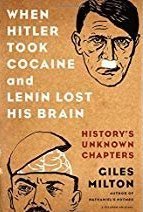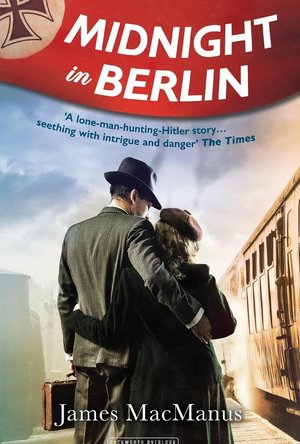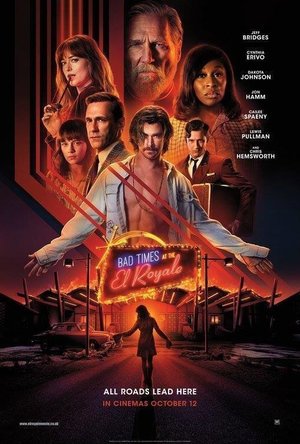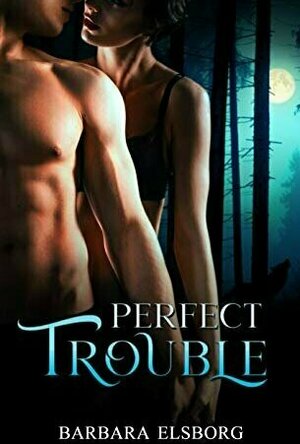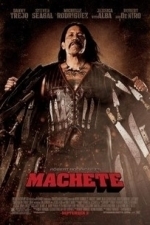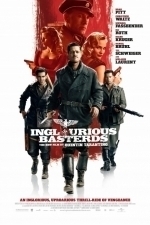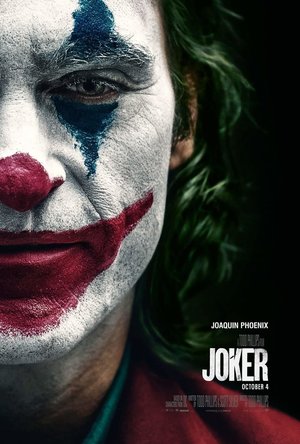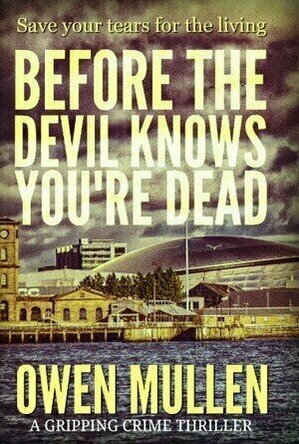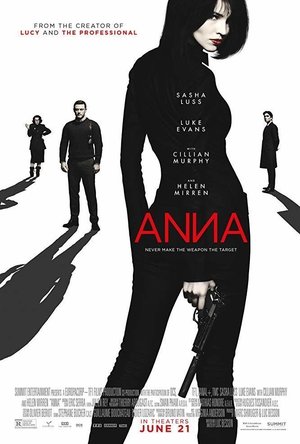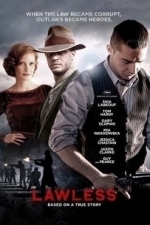Search
Search results
BookblogbyCari (345 KP) rated When Hitler Took Cocaine and Lenin Lost His Brain in Books
Aug 14, 2018
Book Review by Cari Mayhew.
If only all events in history could be taught this way! This is his hands down one of the most entertaining history books you’ll ever read! The book is composed of 50 chapters depicting from lesser known points in history. The stories are dramatic, compelling, and often shocking. There are tales of heroism, injustice, conspiracy and cannibalism.
Each chapter is it's own little, well written, real-life story. And each is rounded off with a profound sentence or two to summarise. I gained an appreciation of the role of pigeons and dogs in the war, I learned why the Dodo bird became extinct, and I discovered that it’s possible to survive 2 nuclear bombs.
Normally with non-fiction book with so many isolated sections, I'd be tempted to skip sections, but that was not the case this time - I enjoyed every single one! I’ve noticed there are more books in the series, and I intend to read them all!
The best way to convey how well written the stories are, is to leave you with an excerpt:
“There was a sickening crunch and a violent jerk. The right wing of the plane was ripped off by the mountain peak and flung backwards into the rear of the fuselage. The plane, wildly out of control, smashed into a second peak, which tore off the left wing.
Inside the cabin, the terrified passengers expected the shattered plane to plunge them to their deaths. But the plane’s crash-landing miraculously spared some of those on board. The fuselage hit a snow-covered mountain slope and slid downwards before coming to a halt in a deep drift.
As a wall of silence descended over the wreckage, the injured and groaning survivors came to their senses. They were lost in the wilds of the High Andes. But they were alive!”
For more of my reviews, check out www.bookblogbycari.com
If only all events in history could be taught this way! This is his hands down one of the most entertaining history books you’ll ever read! The book is composed of 50 chapters depicting from lesser known points in history. The stories are dramatic, compelling, and often shocking. There are tales of heroism, injustice, conspiracy and cannibalism.
Each chapter is it's own little, well written, real-life story. And each is rounded off with a profound sentence or two to summarise. I gained an appreciation of the role of pigeons and dogs in the war, I learned why the Dodo bird became extinct, and I discovered that it’s possible to survive 2 nuclear bombs.
Normally with non-fiction book with so many isolated sections, I'd be tempted to skip sections, but that was not the case this time - I enjoyed every single one! I’ve noticed there are more books in the series, and I intend to read them all!
The best way to convey how well written the stories are, is to leave you with an excerpt:
“There was a sickening crunch and a violent jerk. The right wing of the plane was ripped off by the mountain peak and flung backwards into the rear of the fuselage. The plane, wildly out of control, smashed into a second peak, which tore off the left wing.
Inside the cabin, the terrified passengers expected the shattered plane to plunge them to their deaths. But the plane’s crash-landing miraculously spared some of those on board. The fuselage hit a snow-covered mountain slope and slid downwards before coming to a halt in a deep drift.
As a wall of silence descended over the wreckage, the injured and groaning survivors came to their senses. They were lost in the wilds of the High Andes. But they were alive!”
For more of my reviews, check out www.bookblogbycari.com
Debbiereadsbook (1664 KP) rated Midnight In Berlin in Books
Aug 24, 2018
Not really one for me :-(
Independent reviewer for Divine Magazine, I was gifted my copy of this book.
Covered in feathers, Leon hitchhikes back to his hostel. But Christoph mistakes Leon for a rogue werewolf, and bites him, making Leon like Christoph. Waking up in a house full of others, Leon is more worried about Christoph than his own fate. After Leon frees Christoph, and the truth about their history becomes clear, Leon and Christoph want to leave the pack. But not everyone will let them.
I'm rally not sure how I feel about this book! I did not love it, at all but I didn't hate it either. This is going to be one of those short reviews, and I apologise for that!
It's almost clean, which surprised me, don't know WHY it surprised me, but it did. Also surprised by the fact that I rather liked that it was!
It is, however, quite violent in places. Graphically so, and I did find it a bit too much for me. Someone else might not find it as bad, but me? I didn't like that.
It's told entirely from Leon's point of view and of course I wanted to hear from Christoph. He makes some spur of the moment, life changing decisions here and I needed to know what was going through his mind at those key points in the story.
What Leon does say, is in the first person, past tense, His voice is well written, and well delivered and he gets all the important emotions across in all the right places. I saw no spelling or editing errors to spoil my reading.
I jst don't know if this book was for me, that's all! And Lord knows, I say it often enough, but it pains me when I can't word why I do or do not love a book.
So I'll leave it at that.
3 solid stars.
**same worded review will appear elsewhere**
Covered in feathers, Leon hitchhikes back to his hostel. But Christoph mistakes Leon for a rogue werewolf, and bites him, making Leon like Christoph. Waking up in a house full of others, Leon is more worried about Christoph than his own fate. After Leon frees Christoph, and the truth about their history becomes clear, Leon and Christoph want to leave the pack. But not everyone will let them.
I'm rally not sure how I feel about this book! I did not love it, at all but I didn't hate it either. This is going to be one of those short reviews, and I apologise for that!
It's almost clean, which surprised me, don't know WHY it surprised me, but it did. Also surprised by the fact that I rather liked that it was!
It is, however, quite violent in places. Graphically so, and I did find it a bit too much for me. Someone else might not find it as bad, but me? I didn't like that.
It's told entirely from Leon's point of view and of course I wanted to hear from Christoph. He makes some spur of the moment, life changing decisions here and I needed to know what was going through his mind at those key points in the story.
What Leon does say, is in the first person, past tense, His voice is well written, and well delivered and he gets all the important emotions across in all the right places. I saw no spelling or editing errors to spoil my reading.
I jst don't know if this book was for me, that's all! And Lord knows, I say it often enough, but it pains me when I can't word why I do or do not love a book.
So I'll leave it at that.
3 solid stars.
**same worded review will appear elsewhere**
Steve Fearon (84 KP) rated Bad Times at the El Royale (2018) in Movies
Oct 19, 2018
The Cast (1 more)
Especially Jeff Bridges
Overlong (1 more)
Marketing a little misleading
Not Bad (times at the El Royale)
This was a film suggested by my better half, on the basis of the trailer, excellent cast, and her love for Chris Hemsworth, which to be fair is justified, the guy's a looker.
The trailer had made it look like fun whoddunit, with a colourful cast of characters, a great group of actors, and a fairly lighthearted mystery, and this ticked all the right boxes for us, so along we went.
However, this movie gets pretty damn dark, fairly violent and pretty relentless, and at 140 minutes, this is a serious film.
There is a lot of love for Tarantino in "El Royale", with the style reminiscent of some of his work, though with a bit less feel for comedy, and bigger penchant for musical numbers.
It is enjoyable, and is broken up regularly by switching perspectives to show the viewer the backstory of the main characters, so it doesn't necessarily feel as long as its 140 minutes suggest.
However, it does begin to meander at times, and if it wasn't for the god-like charm of Jeff Bridges, the earnest performance of John Hamm or the captivating allure of Chris Hemsworth in particular, these scenes could have become unbearable.
Cynthia Erivo was spectacular as the soulful lounge singer, and she more than held her own against some of hollywood's finest, and I look forward to seeing her in more big movies in future.
The highlight for me (Chris Hemsworth dancing was hers) was without a doubt Jeff Bridges, the guy can just keep me entertained, no matter the script, no matter the setting, he is just a quality guy, and I loved his performance.
This is a solid 6/10 movie for me, entertaining, happy to watch it once, but I doubt I will watch it again.
The trailer had made it look like fun whoddunit, with a colourful cast of characters, a great group of actors, and a fairly lighthearted mystery, and this ticked all the right boxes for us, so along we went.
However, this movie gets pretty damn dark, fairly violent and pretty relentless, and at 140 minutes, this is a serious film.
There is a lot of love for Tarantino in "El Royale", with the style reminiscent of some of his work, though with a bit less feel for comedy, and bigger penchant for musical numbers.
It is enjoyable, and is broken up regularly by switching perspectives to show the viewer the backstory of the main characters, so it doesn't necessarily feel as long as its 140 minutes suggest.
However, it does begin to meander at times, and if it wasn't for the god-like charm of Jeff Bridges, the earnest performance of John Hamm or the captivating allure of Chris Hemsworth in particular, these scenes could have become unbearable.
Cynthia Erivo was spectacular as the soulful lounge singer, and she more than held her own against some of hollywood's finest, and I look forward to seeing her in more big movies in future.
The highlight for me (Chris Hemsworth dancing was hers) was without a doubt Jeff Bridges, the guy can just keep me entertained, no matter the script, no matter the setting, he is just a quality guy, and I loved his performance.
This is a solid 6/10 movie for me, entertaining, happy to watch it once, but I doubt I will watch it again.
Debbiereadsbook (1664 KP) rated Perfect Trouble in Books
Oct 22, 2019
an enjoyable 90 minute read
I was gifted my copy of this book, direct from the author and I thank Ms Elsborg for that. This is the first I have read of her work, and I hope it will not be the last.
Jonah has a knack for getting into trouble, and he is paying for it for the next 7 years. Getting Jinx off pack lands shouldn’t have been too difficult but Jonah had history with said pack, and they would kill him for sure. Jinx knows Jonah is Trouble with a capital T but she also knows, deep down, he may be the only one to keep her alive.
For the most part, I did enjoy this tale of a faery and a wolf, but for a minor niggle or two, I really did.
Jonah’s mind, even at rest, is going a million miles an hour and I really did struggle at points to keep up with his internal ramblings! I mean, me and my sister can flip a conversation on a penny, and continue as if we had been talking all the time about that subject, but Jonah’s mind? Lord I really did struggle to keep up with him!
Also, I usually like plot twists, but towards the end, they were coming fast and furious. Good plot twists, that I really did NOT see coming at me, but there were just too many in a short space of time.
Some darker themes touched on, mostly how the younger females are treated within the pack, not in great detail, but enough to warrant a warning. It’s not overly explicit, I thought, but it does give enough heat off to make it interesting. A bit violent in places, but needed I think, since Jonah stole gold off the pack and they want it back!
Are there more books with these people? Some interesting characters in the place where Jonah is working!
Overall, a very enjoyable 90 minute read.
4 solid stars
**same worded review will appear elsewhere**
Jonah has a knack for getting into trouble, and he is paying for it for the next 7 years. Getting Jinx off pack lands shouldn’t have been too difficult but Jonah had history with said pack, and they would kill him for sure. Jinx knows Jonah is Trouble with a capital T but she also knows, deep down, he may be the only one to keep her alive.
For the most part, I did enjoy this tale of a faery and a wolf, but for a minor niggle or two, I really did.
Jonah’s mind, even at rest, is going a million miles an hour and I really did struggle at points to keep up with his internal ramblings! I mean, me and my sister can flip a conversation on a penny, and continue as if we had been talking all the time about that subject, but Jonah’s mind? Lord I really did struggle to keep up with him!
Also, I usually like plot twists, but towards the end, they were coming fast and furious. Good plot twists, that I really did NOT see coming at me, but there were just too many in a short space of time.
Some darker themes touched on, mostly how the younger females are treated within the pack, not in great detail, but enough to warrant a warning. It’s not overly explicit, I thought, but it does give enough heat off to make it interesting. A bit violent in places, but needed I think, since Jonah stole gold off the pack and they want it back!
Are there more books with these people? Some interesting characters in the place where Jonah is working!
Overall, a very enjoyable 90 minute read.
4 solid stars
**same worded review will appear elsewhere**
Gareth von Kallenbach (980 KP) rated Machete (2010) in Movies
Aug 8, 2019
This is the film your parents did not want you to see as a child. Violent, vulgar, and more than a little offensive Machete is shocking, not just for the eyes but also to moral sensibilities. Yet, it is also undeniably funny.
This make believe movie trailer highlighted in the movie Grindhouse was, due to its popularity, turned into a full length feature packed with ridiculous fight scenes and some of the most simplistic dialogue of any modern action film. The visuals stay with you. The action is impressive. This is not just another trip to the movies but a wild chaotic journey at the end of a giant blade.
Director and co-author, Robert Rodriguez, has mixed classic Tarantino styling, the wild world of B movies, and his own flair for dramatic character creation to create a film that is violently astonishing. The fight scenes are engaging from weapon selection all the way to last man standing, and do I really need to tell you who that man is? Of, course not.
Machete is not just your typical anti-hero, he is the vision of an anti-hero with ladies and one-liners in tow. While Danny Trejo (Machete) steals the show he is not the only big name appearing on this cast list. The film is packed with stars such as Jessica Alba (Sartana), Michelle Rodriguez (Luz), and Lindsey Lohan (April), who all play critical characters in this bizarre tale. And so far as the men go, there are also quality performances from Robert De Niro (Senator McLaughlin), Don Johnson (Lt. Stillman), Steven Segal (Torrez) and Cheech Marin (Padre).
Moreover, it is not a stretch to say that this film abruptly addresses some significant stereotypes. In fact Machete doesn’t just confront these issues, it wields a large blade of sarcasm in their direction. Giving a new base line for “over the top,” Machete is sure to be a hit with anyone who is not easily offended.
This make believe movie trailer highlighted in the movie Grindhouse was, due to its popularity, turned into a full length feature packed with ridiculous fight scenes and some of the most simplistic dialogue of any modern action film. The visuals stay with you. The action is impressive. This is not just another trip to the movies but a wild chaotic journey at the end of a giant blade.
Director and co-author, Robert Rodriguez, has mixed classic Tarantino styling, the wild world of B movies, and his own flair for dramatic character creation to create a film that is violently astonishing. The fight scenes are engaging from weapon selection all the way to last man standing, and do I really need to tell you who that man is? Of, course not.
Machete is not just your typical anti-hero, he is the vision of an anti-hero with ladies and one-liners in tow. While Danny Trejo (Machete) steals the show he is not the only big name appearing on this cast list. The film is packed with stars such as Jessica Alba (Sartana), Michelle Rodriguez (Luz), and Lindsey Lohan (April), who all play critical characters in this bizarre tale. And so far as the men go, there are also quality performances from Robert De Niro (Senator McLaughlin), Don Johnson (Lt. Stillman), Steven Segal (Torrez) and Cheech Marin (Padre).
Moreover, it is not a stretch to say that this film abruptly addresses some significant stereotypes. In fact Machete doesn’t just confront these issues, it wields a large blade of sarcasm in their direction. Giving a new base line for “over the top,” Machete is sure to be a hit with anyone who is not easily offended.
Gareth von Kallenbach (980 KP) rated Inglourious Basterds (2009) in Movies
Aug 9, 2019
Should we be allowed to laugh at brutality? Is there room for comedy in a film about the Second World War? These are just some of the questions Quentin Tarantino’s latest film “Inglorious Bastards” is sure to bring to mind.
“Inglorious Bastards” is composed of two intertwined stories broken into chapters combining fictitious and factual historic events. The two stories, the tragic tale of orphaned Jewish girl Shosanna (Mélanie Laurent) and that of an oddly funny group of American soldiers, called “the Bastards”, create introspections into the meaning of glory, destruction, and propaganda.
Familiar faces are scattered throughout the film from creator of “the Office” B.J. Norvak to “Austin Powers“ star Mike Myers. The standout performance of Lieutenant Aldo Raine, played by the always-evolving Brad Pitt, is both comical and clever and the role of Nazi Colonel Hans Landa, Christoph Waltz, is so evil that, within the scope of the film, he some how manages to overshadow Hitler.
While the film is visually graphic, it is the ideas of violence rather than explicit visuals that litter the film. These violent scenes, from scalping to strangulation, are more dramatic than visually accurate.
The film did drag in parts such, as the dark Cinderella-like bar scene, and there was definitely room for further character development for “the Bastards”, yet the sly structure of the film shatters these minor faults but keeping viewers completely invested in the plotline.
“Inglorious Bastards” mixes classic film elements with techniques hauntingly David Lynch in style. From elements of television westerns to the hauntingly familiar sound of David Bowie, Tarintino has created a new way of looking at the past, all while using a time generally perceived as too awful to mention as a background for laughter.
Twisted, tortured, glorious and not “Inglorious Bastards” delivers as a film bound to become classic Tarantino. Fans will be elated and those who oppose the film’s adult themes will not walk away without at least thinking about the meaning of this one-of-kind feature.
“Inglorious Bastards” is composed of two intertwined stories broken into chapters combining fictitious and factual historic events. The two stories, the tragic tale of orphaned Jewish girl Shosanna (Mélanie Laurent) and that of an oddly funny group of American soldiers, called “the Bastards”, create introspections into the meaning of glory, destruction, and propaganda.
Familiar faces are scattered throughout the film from creator of “the Office” B.J. Norvak to “Austin Powers“ star Mike Myers. The standout performance of Lieutenant Aldo Raine, played by the always-evolving Brad Pitt, is both comical and clever and the role of Nazi Colonel Hans Landa, Christoph Waltz, is so evil that, within the scope of the film, he some how manages to overshadow Hitler.
While the film is visually graphic, it is the ideas of violence rather than explicit visuals that litter the film. These violent scenes, from scalping to strangulation, are more dramatic than visually accurate.
The film did drag in parts such, as the dark Cinderella-like bar scene, and there was definitely room for further character development for “the Bastards”, yet the sly structure of the film shatters these minor faults but keeping viewers completely invested in the plotline.
“Inglorious Bastards” mixes classic film elements with techniques hauntingly David Lynch in style. From elements of television westerns to the hauntingly familiar sound of David Bowie, Tarintino has created a new way of looking at the past, all while using a time generally perceived as too awful to mention as a background for laughter.
Twisted, tortured, glorious and not “Inglorious Bastards” delivers as a film bound to become classic Tarantino. Fans will be elated and those who oppose the film’s adult themes will not walk away without at least thinking about the meaning of this one-of-kind feature.
Matthew Krueger (10051 KP) rated Joker (2019) in Movies
Nov 4, 2019 (Updated Nov 4, 2019)
The Killing Joke
I finally saw Joker yesterday with a full crowd of people in the theater. Which i was surpise of because it has been out for a month now. But the crowd and i loved Joker.
This is my favorite movie so far of this year. It is psychological, horrorfying, and it takes the Joker charcter on a whole nother level. Joker takes place in the 80's and as a origin movie, Joker is dark, twisted, moody, and terrorfying movie.
Joaquin Phoenix, Frances Conroy and Robert De Niro are excellent in this movie. Both Joaquin Phoenix and Frances Conroy should get nomiated for the oscars.
Joaquin Phoenix takes elements from Cesar Ramero's Joker, Jack Nicolson's Joker and Heath Ledgar and make its it his own. His laugh is perfect. Its scary and so phenomal.
Lets talk about the plot: Forever alone in a crowd, failed comedian Arthur Fleck seeks connection as he walks the streets of Gotham City. Arthur wears two masks -- the one he paints for his day job as a clown, and the guise he projects in a futile attempt to feel like he's part of the world around him. Isolated, bullied and disregarded by society, Fleck begins a slow descent into madness as he transforms into the criminal mastermind known as the Joker.
The way their protray Gotham City in the 80's is perfect. Gotham City, this time is New York City and I think thats perfect.
Joker is the first live-action theatrical Batman film to receive an R-rating from the Motion Picture Association of America, due to its violent and disturbing content. It is also the best DC film since The Dark Knight Rises.
Joker is a memorizing movie, it is psychological, it is twisted, dark and gloomy.
Joker is a highly reccordmend movie, if you havent seen it yet, than i highly reccordmend you see it.
This is my favorite movie so far of this year. It is psychological, horrorfying, and it takes the Joker charcter on a whole nother level. Joker takes place in the 80's and as a origin movie, Joker is dark, twisted, moody, and terrorfying movie.
Joaquin Phoenix, Frances Conroy and Robert De Niro are excellent in this movie. Both Joaquin Phoenix and Frances Conroy should get nomiated for the oscars.
Joaquin Phoenix takes elements from Cesar Ramero's Joker, Jack Nicolson's Joker and Heath Ledgar and make its it his own. His laugh is perfect. Its scary and so phenomal.
Lets talk about the plot: Forever alone in a crowd, failed comedian Arthur Fleck seeks connection as he walks the streets of Gotham City. Arthur wears two masks -- the one he paints for his day job as a clown, and the guise he projects in a futile attempt to feel like he's part of the world around him. Isolated, bullied and disregarded by society, Fleck begins a slow descent into madness as he transforms into the criminal mastermind known as the Joker.
The way their protray Gotham City in the 80's is perfect. Gotham City, this time is New York City and I think thats perfect.
Joker is the first live-action theatrical Batman film to receive an R-rating from the Motion Picture Association of America, due to its violent and disturbing content. It is also the best DC film since The Dark Knight Rises.
Joker is a memorizing movie, it is psychological, it is twisted, dark and gloomy.
Joker is a highly reccordmend movie, if you havent seen it yet, than i highly reccordmend you see it.
Phil Leader (619 KP) rated Before The Devil Knows You're Dead in Books
Nov 8, 2019
It is a snowy Hogmanay in Glasgow. Obstetric Surgeon Gavin Law has made an accusation of malpractice against a colleague, Wallace Maitland, only for an accusation to be made against him. Wallace Maitland doesn't remember Hogmanay but did end up covered in blood. Sean Rafferty is now the head of gangster family having taken over from his violent father Jimmy and is having a party to try to appear respectable.
When Law disappears on that fateful Hogmanay, private detective Charlie Cameron takes on the case to find him. But with no leads he also agrees to look at an apparent suicide for his policeman friend DS Geddes, something will put him on a collision course with Rafferty, a man who has tried to kill Cameron in the past.
This, roughly, is the setting for the third of the Charlie Cameron crime thrillers. Detective novels require their plot and characterisation to be convincing and Mullen delivers both. Cameron is always convincing, and an entertaining narrator of the events as he witnesses them. The usual supporting cast of Pat Logue and Geddes are in fine form and Rafferty seems even more of a threat when in the role of a respectable businessman. The various others involved in the cases all ring true as well. Mullen has a knack for not only making his characters believable but very human and realistic as well.
The plotting did not disappoint either with the Law case especially baffling as all avenues of investigation peter out to nothing, and Cameron's frustration at this is clear. The final reveal caught me by surprise but fits everything together perfectly. It certainly kept me guessing, although to be honest I was enjoying simply following Cameron around and seeing his world too much to spend much time worrying about who did it.
This was a book that I enjoyed reading enormously. Mullen is a terrific writer and Cameron and the world he inhabits is a living breathing thing in his hands. Very very highly recommended.
When Law disappears on that fateful Hogmanay, private detective Charlie Cameron takes on the case to find him. But with no leads he also agrees to look at an apparent suicide for his policeman friend DS Geddes, something will put him on a collision course with Rafferty, a man who has tried to kill Cameron in the past.
This, roughly, is the setting for the third of the Charlie Cameron crime thrillers. Detective novels require their plot and characterisation to be convincing and Mullen delivers both. Cameron is always convincing, and an entertaining narrator of the events as he witnesses them. The usual supporting cast of Pat Logue and Geddes are in fine form and Rafferty seems even more of a threat when in the role of a respectable businessman. The various others involved in the cases all ring true as well. Mullen has a knack for not only making his characters believable but very human and realistic as well.
The plotting did not disappoint either with the Law case especially baffling as all avenues of investigation peter out to nothing, and Cameron's frustration at this is clear. The final reveal caught me by surprise but fits everything together perfectly. It certainly kept me guessing, although to be honest I was enjoying simply following Cameron around and seeing his world too much to spend much time worrying about who did it.
This was a book that I enjoyed reading enormously. Mullen is a terrific writer and Cameron and the world he inhabits is a living breathing thing in his hands. Very very highly recommended.
JT (287 KP) rated Anna (2019) in Movies
Mar 10, 2020
Tell me if you’ve heard this one before? A young woman is pulled from a life of drugs and abuse and given a fresh start as a deadly assassin. Once on the inside, she uses her skill set and good looks to complete various assignments while falling for her handler. She then decides that her new life is not for her after all and wants out.
Writer/director Luc Besson has pretty much rehashed the script for Nikita (aka La Femme Nikita). That film had a remake too, Point of No Return, which starred Bridget Fonda and Gabriel Byrne. This latest offering doesn’t do anything new whatsoever. There are several well choreographed and extremely violent fight scenes as well as a car chase which seems to be a staple part of any Luc Besson film.
It’s not the most intelligently written action thriller. And there are plot holes all over the place.
The sexual exploitation is not as fierce as Red Sparrow. Anna uses an array of colourful wigs and lingerie to entrap her victims before ultimately putting a bullet in them. This only seeks to justify her sex appeal. The supporting cast is OK but nothing special. Helen Mirren is probably the stand out of the bunch, although her character has a striking resemblance to Edna from The Incredibles – or maybe that’s just me?
When Cillian Murphy‘s CIA agent gets involved it becomes hard to know who is double crossing who, and the extra plot strand threatens to confuse things. What results is a kind of Cold War love triangle which gravitates towards an interesting finale only ruined by predictability.
It’s not the most intelligently written action thriller. But it is fun and film fans should appreciate Besson’s high energy and European flair. I prefer him as a writer than director. Anna doesn’t shy away from bringing graphic violence in a Wick-esque style which is often lost with Hollywood blockbusters, so that gets a big tick. But it’s hard not to look past a regurgitated storyline.
Writer/director Luc Besson has pretty much rehashed the script for Nikita (aka La Femme Nikita). That film had a remake too, Point of No Return, which starred Bridget Fonda and Gabriel Byrne. This latest offering doesn’t do anything new whatsoever. There are several well choreographed and extremely violent fight scenes as well as a car chase which seems to be a staple part of any Luc Besson film.
It’s not the most intelligently written action thriller. And there are plot holes all over the place.
The sexual exploitation is not as fierce as Red Sparrow. Anna uses an array of colourful wigs and lingerie to entrap her victims before ultimately putting a bullet in them. This only seeks to justify her sex appeal. The supporting cast is OK but nothing special. Helen Mirren is probably the stand out of the bunch, although her character has a striking resemblance to Edna from The Incredibles – or maybe that’s just me?
When Cillian Murphy‘s CIA agent gets involved it becomes hard to know who is double crossing who, and the extra plot strand threatens to confuse things. What results is a kind of Cold War love triangle which gravitates towards an interesting finale only ruined by predictability.
It’s not the most intelligently written action thriller. But it is fun and film fans should appreciate Besson’s high energy and European flair. I prefer him as a writer than director. Anna doesn’t shy away from bringing graphic violence in a Wick-esque style which is often lost with Hollywood blockbusters, so that gets a big tick. But it’s hard not to look past a regurgitated storyline.
Gareth von Kallenbach (980 KP) rated Lawless (2012) in Movies
Aug 7, 2019
Prohibition means profit to the bootlegging Bondurant brothers, until a new deputy appears wanting a cut of the action. When the family, led by oldest brother Forrest (Tom Hardy), refuses, it ignites a pattern of violent lawless retribution between the corrupt local authorities and the moonshine-selling brothers.
While adapted from the pages of a successful book, the plot of “Lawless” portrays a familiar story. A young romance slated against the challenges of a family who is literally and metaphorically, sticking to their guns. The brilliance of the film exists in the vivid set work, understated characterization, and graphic portrayals of unbridled yet historically accurate punishments.
There are bullet holes everywhere in this wild land of violence. The depictions of torture, while not the most graphically intensive in cinema, are characterized by psychological malice. The result is a film that manages to entirely pull the viewer into a different, much less civilized, time.
Led and narrated by seasoned actor, Shia LaBeouf, as the youngest brother, Jack Bondurant, the role is hardly a challenge. Yet his performances only stands out when supported by other cast members, such as the gangster Floyd Banner, played by Gary Oldman. And while LaBeouf’s performance is not a great as it could be, it shines next to his lackluster costar, Mia Wasikowska as Bertha Minnix the forbidden preacher’s daughter and object of young Jack’s eye.
The best performance in the film is not the lead, but that of his brother Forrest who dispenses well-timed wisdom or humor even in direst situations. Further helping in the films success are the supporting characters; the third Bondurant brother, Howard (Jason Clarke), mechanically gifted family friend, Cricket Pate (Dane DeHaan), and city wise beauty Maggie Beauford (Jessica Chastain).
While not as impressive as expected, the slow but steady story and complex visceral nature of “Lawless”, make it a film that is worth the price of a ticket, for anyone who can make it through the squeamish bits.
While adapted from the pages of a successful book, the plot of “Lawless” portrays a familiar story. A young romance slated against the challenges of a family who is literally and metaphorically, sticking to their guns. The brilliance of the film exists in the vivid set work, understated characterization, and graphic portrayals of unbridled yet historically accurate punishments.
There are bullet holes everywhere in this wild land of violence. The depictions of torture, while not the most graphically intensive in cinema, are characterized by psychological malice. The result is a film that manages to entirely pull the viewer into a different, much less civilized, time.
Led and narrated by seasoned actor, Shia LaBeouf, as the youngest brother, Jack Bondurant, the role is hardly a challenge. Yet his performances only stands out when supported by other cast members, such as the gangster Floyd Banner, played by Gary Oldman. And while LaBeouf’s performance is not a great as it could be, it shines next to his lackluster costar, Mia Wasikowska as Bertha Minnix the forbidden preacher’s daughter and object of young Jack’s eye.
The best performance in the film is not the lead, but that of his brother Forrest who dispenses well-timed wisdom or humor even in direst situations. Further helping in the films success are the supporting characters; the third Bondurant brother, Howard (Jason Clarke), mechanically gifted family friend, Cricket Pate (Dane DeHaan), and city wise beauty Maggie Beauford (Jessica Chastain).
While not as impressive as expected, the slow but steady story and complex visceral nature of “Lawless”, make it a film that is worth the price of a ticket, for anyone who can make it through the squeamish bits.
